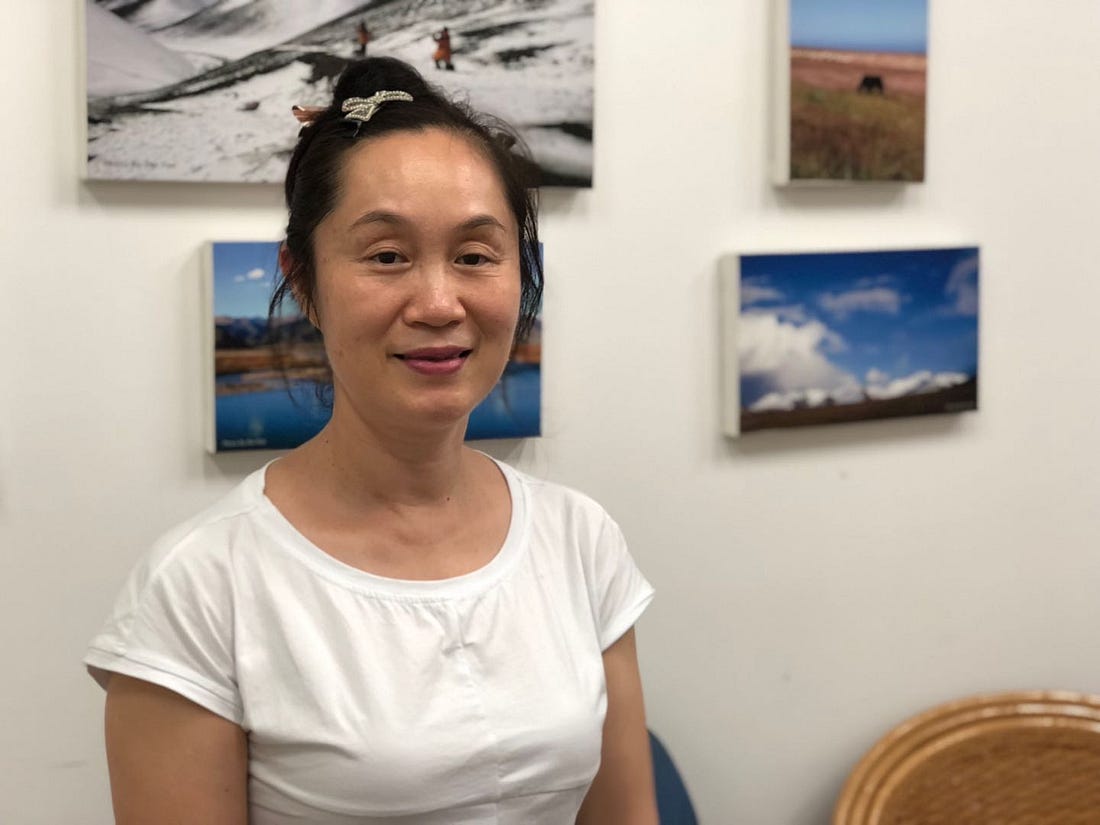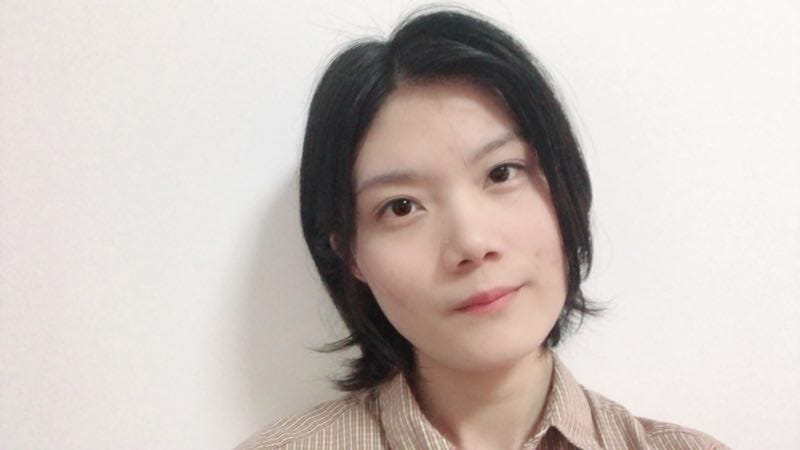
In this issue, we bring you the first installment of a story by reporter Qiu Yuanting, which first appeared in Southern People Weekly. It recounts the difficulties that Chinese teenager Jiang Bo encountered—including bullying, and mental and physical abuse at the hands of teachers—as he attempted to navigate the country’s public school system.
Fortunately, his brother, Jiang Wenhua, stepped in, removing Jiang Bo from conventional education, and pushing him into a world of alternative learning.
In this edition, we’ll also point to some recent longreads from Chinese publications that caught our eye, and highlight an emerging hub of creative writing in English at Sun Yat-sen University in Guangzhou, southern China. We’re delighted to share a brief excerpt from a creative nonfiction piece by Ren Wui (Erica), a talented writer from the student body there.
Please help us grow our community by sharing the Chinarrative Newsletter with family, friends, or colleagues.
Links to past issues are listed at the bottom of this newsletter in case you have missed any.
Until next time!
School Dropout Do-over
By Qiu Yuanting
It’s been four years since 17-year-old Jiang Bo* parted ways with conventional education. Village snoops would probably consider him a “delinquent school dropout.”
Jiang Bo had always wondered if other people’s childhoods were carefree, pure, and happy. He knew only hardships: poor grades, scolding, and corporal punishment at the hands of teachers, classmates who bullied and ostracized him, and his parents’ rocky relationship.
In first grade, his teacher told the entire class to ignore “low-grades Jiang Bo.” His classmates duly isolated him.
In third and fourth grade, a newly appointed teacher took a disliking to him, and picked on Jiang Bo, yelling at him to “get lost.”
Because of that experience, Jiang Bo came to detest talking to the other students, saying:
Even now, I still remember that teacher’s name. I really hate him.
In sixth grade, Jiang Bo’s class was assigned the strictest teacher at the school, who was prone to thrashing students with a plastic rod in parts of their bodies not easily seen, and hurling abuse at parents.
 Jiang Bo at work on a computer. Courtesy Southern People Weekly.
Jiang Bo at work on a computer. Courtesy Southern People Weekly.
As a student at the bottom of his class, Jiang Bo became a special target for this teacher. When the beatings grew fiercer, Jiang Bo would sob, admitting fault, and beg the teacher to stop.
Getting a good teacher hinged completely on luck. He felt especially grateful for his teachers in second and fifth grades. They treated everyone equally, and they were fair and good-natured.
Between 2008 and 2014, this is how Jiang Bo passed six fearful, difficult years of schooling at a public elementary school close to his home in Guiyang [the capital of southwestern province Guizhou].
Homelife was not welcoming either as Jiang Bo’s parents were constantly fighting. Sometimes they directed their anger at him and his having ever been born at all.
For many students like Jiang Bo, quitting school is often the only choice. Although, most people see the decision to leave school as risky, exposing them to discrimination.
But Jiang Bo is different because of his brother, Jiang Wenhua. Jiang Wenhua, who is ten years older, works in innovative education, which uses adaptive or unconventional tools, methods, and practices to better engage students. Under immense pressure from Jiang Wenhua, his parents agreed to let Jiang Bo withdraw.
Older Brother to the Rescue
Jiang Wenhua had to bear his own share of stress. He fought with his parents over pulling Jiang Bo out of school and ended up quarrelling with nearly all of their relatives.
As an educational professional, Jiang Wenhua knew there were ways to opt out of the education system. He had worked in public welfare projects for countryside education since his college years, and after graduating, he founded a small company specializing in innovative education.
Because of his involvement in the welfare sphere of innovative education, he had dealt with many students who were receiving an education outside of the schooling system: homeschooling, innovative micro-schools, or different kinds of vocational training.
Jiang Wenhua reels off the kinds of student who were usually homeschooled: those from Christian families, those whose families opposed educational alienation (where students are estranged, disengaged, or uninvolved in the learning process), and a small number with special education requirements, as well as high achieving top students and those who were unable to adapt to the system.
“My younger brother fully embodies that title of ‘academic bottom feeder,’’’ Jiang Wenhua said with a laugh as Jiang Bo sat on one side, nodding.
When asked: “Isn’t it a blow to your self-esteem to be labeled this way?” Jiang Bo shakes his head.
His brother answers for him:
He knows that you can’t deny that his grades are bad. But certainly that doesn’t mean that he has low IQ.
At the time, Jiang Bo had just entered middle school but was still struggling. A relative, who had pulled strings to get him admitted, told the school to “discipline him well,” so they assigned Jiang Bo to a particular class—one whose teacher had a reputation for strictness.
The teacher hit Jiang Bo on the first day of school because he had a small scuffle with a new classmate about seating. Eventually, everyone in the class had suffered punishment by way of the teacher’s steel ruler. In the wintertime, the teacher would even force students to soak their hands in ice water for five minutes until they swelled before hitting them with the steel ruler.
Hitting and kicking became the norm. At the height of one of his rages, the teacher shoved a student from the podium to the back of the classroom, knocking over a couple of tables along the way.
Jiang Bo recalled another time when a male student made a mistake in class. To punish him, the teacher had all the other boys in the class take turns at hitting the student.
Jiang Bo said that he had gotten along well with that student.
When asked whether he had hit that student, Jiang Bo answered:
There was nothing I could do, except go a little easier on him and say sorry. But you know, this was a top teacher in the province.
The only redeeming feature of that teacher was that he once stood up for Jiang Bo in a matter involving the school’s office. For that, Jiang Bo felt fleeting gratitude.
From then on, Jiang Bo said he that tried as much as possible to avoid teachers who didn’t have children of their own.
His mother was friendly and meek in her interactions with his teachers while his father was too busy with his work to bother.
His older brother, who was in college at the time, had to be both a father and brother figure to Jiang Bo, so he shouldered the responsibility of Jiang Bo’s schooling.
The teacher had a rule that students would have to write a hundred lines for each mistake made in English listening exercises. Jiang Bo’s 25 mistakes meant he had to write 2,500 lines. Unable to just stand by, Jiang Wenhua helped his brother write until they finished at 2 am.
Jiang Wenhua had a talk with the teacher, but it went nowhere. After giving it some consideration, Jiang Wenhua felt that perhaps he should put his foot down and take his younger brother out of the conventional schooling system.
Discussing withdrawal with his parents was a matter of presenting the facts and reasoning things out. With relatives and acquaintances, it was nothing more than an issue of face (keeping up of appearances).
Older relatives took turns dissuading them, but Jiang Wenhua deflected their criticisms and countered every argument by repeating, “You don’t pay for it, so it has nothing to do with you.”
For him, the hardest part of convincing his parents was not necessarily the issue of Jiang Bo’s future. In fact, that turned out to be the easiest point of attack once Jiang Wenhua laid out his brother’s grades and experiences before them.
Forced to consider Jiang Bo’s prospects, they easily recognized that he had no chance at getting into college by taking the gaokao, the college entrance exam.
Nor could an ordinary family like theirs afford to send their son abroad to study.
Jiang Wenhua strove to convince his parents that “unless you worked within the education system” as teachers or instructors, a diploma was growing increasingly unnecessary in current and future society.
Instead, abilities, resources, and connections were key factors. Since Jiang Bo’s situation would only worsen if he stayed in school, would it really hurt to let him try a different route?
To be continued…
* Jiang Bo and Jiang Wenhua are pseudonyms.
Translator: Katherine Tse
Recent stories we liked:
In addition to this issue’s featured excerpt, we would like to highlight the following outstanding Chinese-language stories:
Some people have been dealt a very tough hand by life, but it seems like every possible disaster has struck the protagonist of a recent piece in Truman Story. The man, whose name is given as Lu Zhong, was paralyzed from the waist down by an accident. He divorces his wife, so she can remarry, then the man she remarries dies after being beaten up. Lu Zhong’s ex-wife then dies of liver cancer. He even tries to commit suicide, before finally coming to terms with his lot. All the names in the piece, which appears to have been written by a freelancer, are pseudonyms. Still, we’re drawn to the tone and voice of this incredible story.
Hong Kong-based Initium Media is running a three-part series about two young trekkers from Taiwan who went missing in the Himalayas last year. Liang Sheng-yueh, 21, was found after 47 days. But it was already too late for his girlfriend, Liu Chen-chun, 19, who died just three days prior. The reporting is strong and the piece well-written, but the storytelling is hampered by the girl’s parents who declined interview requests and asked that their daughter be kept out of the story as much as possible. Meanwhile, the young man appears to be still processing the ordeal and not quite ready to open up completely.
Popular Chinese video app Douyin is doing wonders for improving family ties, according to this feature in Truman Story. The app, which is known internationally as Tik Tok, is no longer just a young folks’ thing—it’s gaining popularity among middle-aged parents, and even grandparents, the article says. Seems families that play together on social media stay together.
Creative Writing in English Takes Root in Guangzhou
A key goal for Chinarrative is to become a platform for great storytelling on and about China in English. Some of the stories we share are translations from Chinese publications, a small number of which are publishing more longreads and other forms of nonfiction writing. For more on this, take a look at a Medium post we wrote earlier this year.
But we also want to become a platform for original nonfiction writing in English on China, showcasing Chinese voices where possible. Over the summer, our search for new sources of creative writing in English led us to Sun Yat-sen University, in the southern Chinese city of Guangzhou.
There we visited the Sun Yat-sen University Center for English-language Creative Writing, which is part of the School of Foreign Languages and is headed up by Dai Fan, head of the department of English.
 Dai Fan, head of Sun Yat-sen University Center for English-language Creative Writing.
Dai Fan, head of Sun Yat-sen University Center for English-language Creative Writing.
Dai says about 50 students take courses in creative writing a year, including in creative nonfiction, involving undergraduate, master’s and doctorate degree students. She says her center is only one of a handful of academic institutions in China offering creative writing in English.
Most of the students are in their early twenties and are mainly female, she said.
If more Chinese people take up storytelling in English, that would help improve the world’s understanding of China, she said:
The Chinese perspective has been largely missing because so few have been writing in English.
In addition to academic courses for Chinese students, Dai also organizes writing retreats in China for foreign writers. “I want them to give them channels to know China, and create time for literary and cultural exchanges,” she said.
For now, most of the work of her Chinese students have been published in anthologies, and the center has yet to fully embrace digital platforms, according to Dai.
Chinarrative has selected one brief excerpt by Wen Rui (Erica), one of Dai’s students. In this piece, 21-year-old Wen, who is originally from Tongren, a city in Guizhou province, writes evocatively about her sexual orientation and how it impacts her relationship with her mother.
 Wen Rui (Erica). Courtesy Wen Rui.
Wen Rui (Erica). Courtesy Wen Rui.
“It’s a little hard for me to write in English,” Wen, who kept a blog in Chinese for several years, told Chinarrative. “I have a totally Chinese way of thinking when I write.”
It was only when she came to Sun Yat-sen that she began to write in English. “It’s different from all my writing experiences in the past,” she said. “It’s a good feeling.”
Mommy
I chased a girl for three years from when I was fourteen. That was almost half of my adolescence. I got nothing but sadness and deeper self-doubt when I turned seventeen. But that was the year I began to think about my homosexual identity.
Once I asked my mother what she thought of homosexuality and she said “that’s disgusting.”
She never knew that I always really cared about my identity. I cared about who I am, what kind of life I want and what kind of person I love.
But it seemed she never cared about these things. She thought her daughter should be more carefree. She thought I should grew up normally, get a nice job and marry a nice man. And, uncommon things should not happen.
I think a person who is gay thinks more than one who is straight. I began to doubt my identity when I realized that I was gay.
I asked myself again and again: “Who am I?”
Thousands of rounds of self-inspection made me grow up quickly and also made me unhappy. I knew that my mother would never tolerate her daughter being homosexual. It’s hopeless when I think of this—I came from my mother but she doesn’t admit I exist. I found the reason why my confidence collapsed for so many years. I also knew nothing could provide remedy.
I have been with several girls and sadly all of them found that I have some personality defects. They thought I was too dependent on them in the relationship. Of course, I will rely on a girl if she loves me. That’s what I lack.
My ex-girlfriend yelled at me when we broke up, she said: “I’m not your mum!”
And I said: “I never considered you my mum, okay?”
But the truth was: I could never be together with a girl who was even one day younger than me.
“Young girls are stupid, I don’t want to take care of them.”
“So you found me to take care of you?”
“Come on! Don’t make me sound so abnormal!”
“You are abnormal!”
I can accept that people think I’m a weird person. But I cannot ignore my girlfriend thinking I’m abnormal or disgusting.
I felt I was abandoned in an abyss where my mother would never catch me.
I finally compromised with “my mother.” Even she never knew that I got so much hopelessness from her. She thought I was a normal and happy girl. I surely had to pretend.
I became a person more like my father, for he knows how to love and how to deal with my mother. I tried so hard to reject my mother’s traits and way of thinking.
But I also think it is so pitiful if I “abandoned” her like this.
But I love her so much. It seems that gay people always love their mothers so much and would defend them with their lives if need be. I don’t know why and how it works like this. I only know that mother is the only one who proves that I exist.
Maybe one day I will be bruised and scarred, and I won’t know what to do or where to go. I will still remember where I come from.
This story originally appeared in Roots, an anthology of student writings produced by Sun Yat-sen University in collaboration with Australia’s RMIT University.


